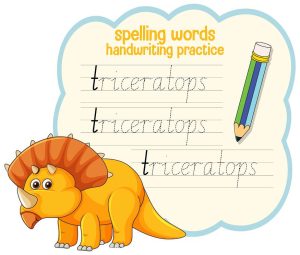Finding the Perfect Study Routine: Day or Night?

There are very few things that universally bring on stress and anxiety amongst adults and children alike. The mere mention of the word ‘exam’ is enough to cause dread amongst parents and children alike. With today’s heavy classroom workload, most children struggle to find balance between homework, assignments and daily revisions of curriculum.
An efficient study schedule is key to overcoming the stress and anxiety of exams. Setting a study schedule for your child that suits their optimal learning style is essential. If you’re wondering what the best time to study before an exam is, the answer is simple – it is when your child learns best. Some children prefer to wake up early in the morning and complete their assignments, while others prefer to work late at night. You must take into consideration not only how they learn, but also when they learn best.
In this blog, we will cover the advantages and disadvantages to daytime and nighttime studying. We will also cover some effective study tips for students at home.
Studying During the Day – The Benefits:
There are many advantages to studying during the day. Here are some key benefits:
- Natural Light Boosts Mood and Energy: Reduced exposure to the sun is linked to poor moods, lower energy and perhaps even depression. Studying during the day when natural light is aplenty helps kids to stay alert and boosts concentration.
- Structured Routine: Most schools and colleges have working hours during the day. Children become naturally accustomed to studying during the day because of this routine.
- Access to Resources: During the day, one has access to libraries, group study, and teachers when stuck with concepts or particularly difficult study problems.
- Better Sleep Patterns: With the worry and anxiety of completing their work behind them, children are more likely to have a good night’s sleep after they finish studying. Getting a good night’s sleep is especially important for a student because it enhances memory and other aspects of cognitive function.
Drawbacks of Daytime Studying
Despite its benefits, daytime studying has some disadvantages:
- More Distractions: There are a lot of external activities during the day – whether within the home or outside it. It is often hard for students to find a quiet and peaceful setting in which they can study without interruptions and distractions.
- Energy Slumps: Every child has an energy cycle which is characterised by periods of focus and alertness, followed by periods when energy and concentration levels are low. During these times, a child might feel drowsy and may be less willing or able to work.
- Competing Priorities: During the day, a child may have other activities that compete for their attention – like extra classes or lessons, sports or even extra-curricular activities.
Advantages of Studying at Night
Night-time studying may not be a common practice, but it does have its unique advantages.
- Fewer Distractions: It is often calmer and quieter at night, which makes it conducive for learning and focus.
- Enhanced Creativity: Many students prefer to study at night because they find that they are more creative during this time.
- Better Memory Retention: There are a number of studies that have shown that memory consolidation occurs during nighttime hours. This helps in boosting retention and recall of what has been learnt.
Drawbacks of Nighttime Studying
Studying at night might seem like an ideal option, but it does present some challenges:
- Risk of Sleep Deprivation: Waking up late affects the sleep schedule, causing sleep deprivation. When children do not get proper sleep, they are likely to feel tired, which will affect their focus in class and during the day.
- Limited Access to Resources: There are very few opportunities to access help with understanding concepts and other peer interactions at night.
- Disruption in Sleep Cycles: The circadian rhythm is a natural energy cycle that regulates sleep and wakefulness. Studying for long hours in the night may disrupt this cycle, causing lower energy levels and cognitive function during the day.
Daily Study Tips for Students
No matter when you choose to set up your child’s study schedule, these daily study tips for students at home can help you make the most of their studying and learning process.
- Create a Study Schedule: Schedule a set study time and ensure your child adheres to it daily. Time management is also an important life skill, which can benefit your child greatly during examinations. Having a set plan with clearly identified milestones, goals and timelines to achieve them can help in doing a given task productively.
- Set Clear Goals: Make specific objectives for each study session, such as aiming to cover a certain chapter or doing a certain number of questions.
- Take Regular Breaks: Concentrating on a particular lesson for too long without a break can cause unnecessary stress. A good system to set up is studying for a quarter of an hour and then taking a 5-minute break.
- Stay Hydrated and Eat Healthily: Make sure your child drinks plenty of water and maintains a good and balanced diet. This will ensure they do not get tired easily. Smart foods to include in their diets include blueberries, walnuts, and dark chocolate – which surprisingly has been proven to boost the brain’s ability to focus and recall information.
- Find a Comfortable Study Environment: A proper environment for learning can do wonders in aiding focus, memory retention and recall. Ensure there is enough light along with a comfortable desk and chair. A quiet space with minimal interruptions is optimal.
- Use Active Learning Techniques: Make content interesting by rewriting it in your own words and explaining it to your child. You can also use memory cards and mnemonics to help your child remember difficult concepts better.
There is no conclusive answer to determining the right time to study before the exams. Some children have better learning capacities during the day, while others are better suited to nighttime studying. The best way to find the answer that’s right for your child is to vary their study times, and see when their learning is most productive. Using study tips and active learning methodologies will also help in memory retention and recall. Ultimately, you must work with your child to find a study schedule that works for them.
At Billabong High International School, we believe that every child learns differently. Our integrated curriculum is designed to include various learning styles to ensure every child learns at their full potential. Visit our website to learn more about our curriculum.








